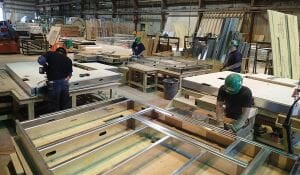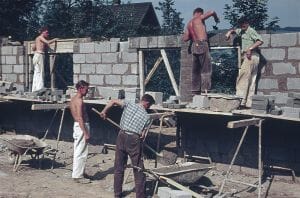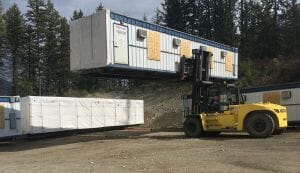How BIM & AI are Improving Modular Construction Outcomes Across Europe
Digitalization and ever-advancing project modelling software have been aiding traditional manufacturers, builders, and designers for years. More recently, tech-savvy modular and offsite construction stakeholders have also embraced these tools, adding their own knowledge and data to create newer, faster, more efficient ways of building. Together with new BIM- and AI-powered tools, these builders are now pushing the boundaries of what’s possible with offsite construction and energy management.
In an effort to expand that knowledge across the industry, the Modular Building Institute (MBI), the world’s largest international trade association for the commercial modular construction industry, is bringing one of its premier events to Madrid in early October.
The Latest Education at World of Modular Europe
World of Modular Europe 2025 (WOM Europe), an international conference hosted by MBI on 6-8 October, will feature speakers, exhibitors, and attendees from across Europe and around the globe. In addition to manufacturers and designers, World of Modular Europe will feature some of the leading voices in the use of BIM and AI in offsite construction. The three-day conference will offer key insights, best practices, and the opportunity to meet leaders and stakeholders from every corner of the European industry.
The Growing Influence of BIM on Offsite Construction Workflows
“We see that BIM adoption levels differ greatly from market to market and from company to company,” says Joonas Mauer, VP of Sales at build.works technologies OÜ and speaker at WOM Europe. “The toolset available for BIM design and collaboration has been developing at a rapid pace, improving the overall quality of models both detail and information content wise. Both advanced adopters and beginners have a greater understanding of the value BIM adds to the workflows and are either working or planning their development in this direction.
“Data-centric thinking is the real key,” adds Mauer. “Be the company small or large – it is especially relevant for manufacturing-oriented construction methods as the processes are better defined and easily controllable. When implemented systematically to support both product development and customization, BIM becomes an ideal tool for the offsite construction industry.”
AI is Improving Energy Management for Modular Builders
With the growing importance of digital building tools, there’s another element of construction projects that’s becoming increasingly important to developers and end users alike: energy management and conservation.
“One of the defining features of modular and portable buildings is how quickly they can be deployed, reconfigured, or relocated,” says Nic Shulman, CEO at Aireavu, another presenter at WOM Europe. “That flexibility is a strength, but it creates a real challenge for traditional energy management approaches, which are usually built for fixed, more stable environments.
“When a building’s use shifts suddenly - say from a classroom to an office, or from a healthcare unit to a site cabin - traditional methods often can’t keep up, resulting in wasted energy.
“This is a challenge Aireavu has been tackling in real, operational portable buildings. Through that work, Aireavu has been developed to meet the issue head-on - creating a solution that embraces the nature of modular buildings and can adapt to rapid changes, ensuring operational efficiency isn’t compromised when buildings are on the move.”

Joonas Mauer, VP of Sales at build.works technologies OÜ, is presenting "Maximizing BIM: Streamlining Off-Site Construction Workflows" at World of Modular Europe 2025.

Nic Shulman, CEO of Aireavu, is presenting "Revolutionizing Energy Efficiency in Modular Buildings with Trustworthy AI" at World of Modular Europe 2025.
Inside a BIM-Driven Workflow
“Adoption of BIM design tools has become the industry standard,” says Mauer, “and those who have yet to implement them are seriously considering or already moving in that direction.”
For build.works, designing an optimum workflow requires a holistic view.
“A BIM-driven workflow in an offsite project using build.works typically starts with importing the project BIM model (or connecting it from our partner CDE – Autodesk Construction Cloud), enriching it with company-specific data and generating a structured bill of materials (BOM),” says Mauer. “This feeds directly into budgeting, scheduling, and procurement, ensuring every resource is planned with precision, and continuously keeping a link to the BIM model. On the shop floor, tasks are created with direct links to model elements, so production teams always work with the latest specifications. Quality checks and progress tracking are also integrated with the same information, keeping all stakeholders aligned from sales through to delivery - without duplicating data or losing information between stages. Seamless integrations are set up between build.works and company ERP and other business management systems to continue the uninterrupted workflow.
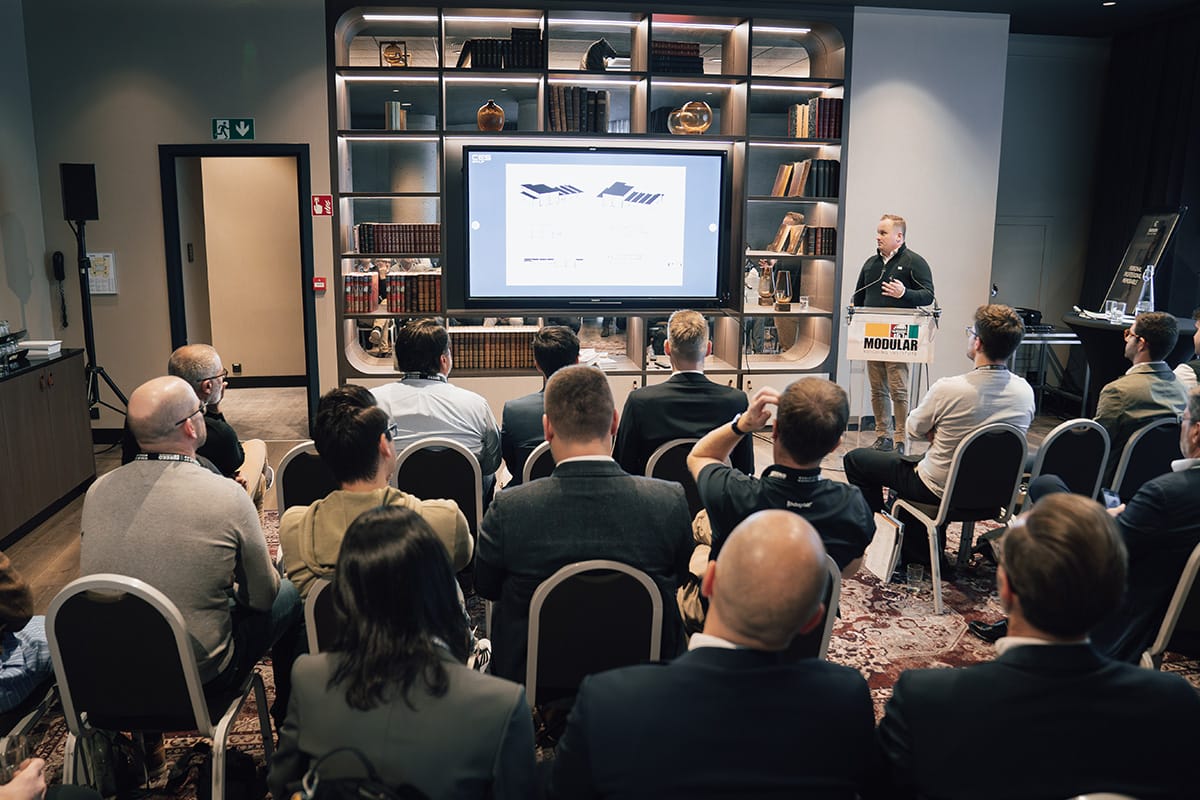
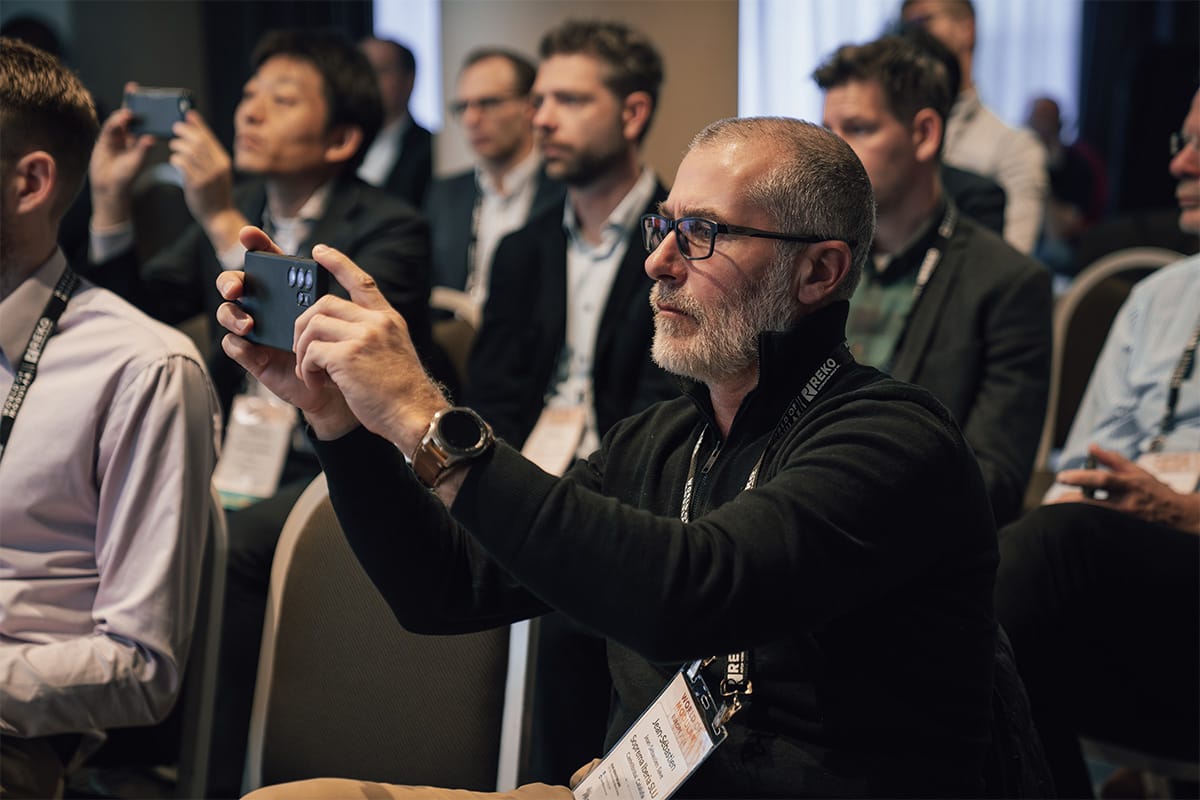
MBI's World of Modular Europe provides an educational forum for modular construction professionals across Europe and around the world.
Educating the Modular Construction Industry
World of Modular Europe 2025 will offer attendees the chance to learn and converse directly with Mauer, Shulman, and dozens of other modular and offsite construction industry leaders.
Mauer is excited to keep the industry’s digital momentum going.
“Innovation leaders are testing out various ideas, and it is a fast-developing field,” he says. “We see many very promising product configurators coming to the market, opening the door for custom orders made directly from online environments by developers or end-clients themselves. These will definitely help to increase the market for prefabricated housing.
“I aim to share both my personal and our company’s experiences, offering a positive outlook on how digitalization and BIM adoption can transform off-site construction operations. I hope all attendees, whether experienced or just starting, leave with new ideas, practical insights, or confirmation that they’re on the right path with digitalization and BIM. I also want to spark questions and follow-up conversations. Like Rome, BIM-based workflows aren’t built in a day, but they continue to evolve toward ever more efficient solutions.”
And Shulman is similarly enthusiastic.
“In Madrid at the World of Modular Europe, I’ll show how modular buildings can set the standard for modern building performance. Recognising that many in the audience may not yet be familiar with trustworthy AI, I’ll provide clear explanations and make it relatable to their day-to-day work in the industry.
“If attendees arrive having looked closely at the challenges they already face with their current energy management approach and metrics, they’ll be in the best position to see the elegance of our solution.”
Learn More About WOM Europe
MBI’s second annual World of Modular Europe will bring together hundreds of attendees, industry exhibitors in Madrid on 6-8 October. A complete event overview, and links to register, can be found at https://www.modular.org/world-of-modular-europe/
About the Author: John McMullen, PCM, is the marketing director for the Modular Building Institute. You can reach him directly at mcmullen@modular.org or on LinkedIn.
Additional Government Affairs Articles
MBI Secures NY Governor Veto On Bill Targeting Modular Industry
A large fleet owner member of MBI was recently delayed in Georgia due to the state’s confusion over the details of the International Building Code. According to the company’s regional general manager, “The feedback we got was, ‘Your plans are not up to date, you need to bring them up to code.’”
Here’s how MBI was able to correct the state’s misunderstanding.
Read Complete ArticleWhat is the Davis-Bacon Act and How Does it Affect Modular Construction?
Adopted in 1941, the Davis-Bacon Act was written long before the modular construction industry gained momentum. Now, the US Dept. of Labor is considering applying the law in ways that will seriously curtail the use of modular construction for federal and state projects.
Read Complete ArticleMBI Solves Relocatable Building Code Issues in Atlanta
A large fleet owner member of MBI was recently delayed in Georgia due to the state’s confusion over the details of the International Building Code. According to the company’s regional general manager, “The feedback we got was, ‘Your plans are not up to date, you need to bring them up to code.’”
Here’s how MBI was able to correct the state’s misunderstanding.
Read Complete ArticleMBI Helps Kick-Start Stalled Plan Review Process
Modular projects in Washington State had ground to a halt. Plan review lead times began stretching into six, eight, even twelve weeks. “Over the summer of 2021, it was getting even longer than that,” says Alan Rasmussen of Modern Building Systems. “By the fall and winter of 2021, reviews were taking 24 weeks.”
Here’s how MBI was able to get things moving again.
Read Complete Article- « Previous
- 1
- 2
- 3
- 4
- Next »

